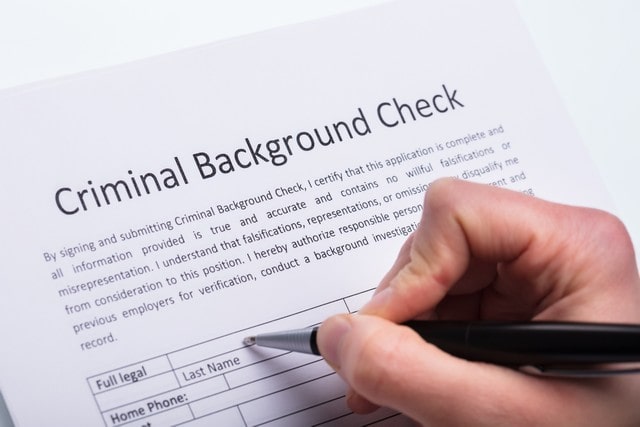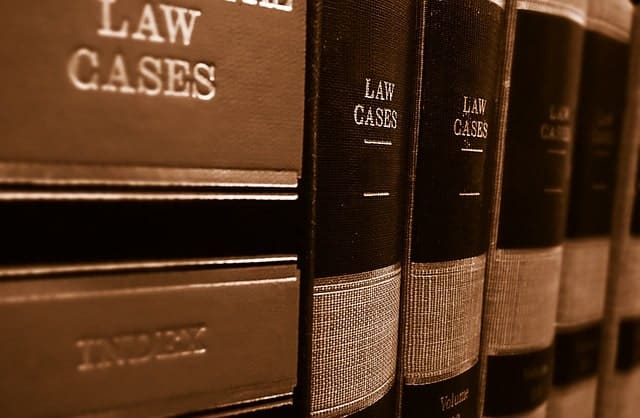Kansas City, Missouri Expungement Attorney
Clearing Your Criminal Record Through Missouri Expungement
In the age of the internet and electronic data records, it is very difficult to leave your past in the past. A criminal record, offense violation, or infraction can follow you for years to come, impeding your ability to get hired, get into college, qualify for student loans and welfare, and even find housing.
Thankfully, there is some relief available in the form of getting your record expunged. Individuals who are eligible for expungement can have their convictions and arrest records hidden from the public. If a job application asks whether an applicant has any criminal convictions, no expunged offenses need to be disclosed.
Below, you’ll find some basic but important information about it.
Expungement Does Not Cover All Crimes
Missouri’s expungement law is most helpful to individuals convicted of non-violent, relatively minor offense violation or infraction, and misdemeanor or felony offense of assault. These offenses violations could include things like drug possession, theft/shoplifting, vandalism, and destruction of property, just to name a few. While these are considered “minor” offenses in terms of their associated criminal sentences, having these offenses on your record can make it much more difficult to find a job or secure desirable housing.
Unfortunately, there are many crimes that cannot be expunged, including:
- Class A felony offenses and defrauding secured creditors.
- Offense of Kidnapping.
- Any conviction that requires sex offender registration
- Nearly any felony offense that would be classified as crimes against the person
- Any misdemeanor or felony assault offenses involving death as an element of the offense
- Repeat DWI offenses (first-time DWI convictions can be expunged after 10 years if there have been no repeat offenses in that time)
If you are not sure whether your criminal record qualifies for expungement, give us a call. We would be happy to discuss your options in a initial consultation.
Step-by-Step Guide to the Expungement Process in Missouri
- Determine Eligibility: Confirm that your offense qualifies for expungement under Missouri law. This often includes non-violent crimes, certain misdemeanors, and felonies.
- Gather Documentation: Collect all necessary documents, including arrest records, court documents, and any evidence showing successful completion of your sentence.
- File a Petition: Submit a petition for expungement to the court where you were charged or convicted. Ensure your petition includes all required information, such as your name, the specific offenses, and dates.
- Notify Prosecutors: Inform the prosecuting attorney’s office by serving them a copy of your petition. They have 30 days to respond.
- Court Hearing: Attend the court hearing where a judge will review your case. Be prepared to present your case clearly and provide any additional documentation or testimony required.
- Judge’s Decision: After the hearing, the judge will decide whether to grant the expungement. If approved, the record will be sealed from public view.
- Follow Up: Obtain a certified copy of the expungement order and ensure all relevant agencies, including law enforcement and background check companies, have updated their records.

Why Seek Help From A Lawyer
Under Missouri law, a person can file an expungement petition to expunge records related to an arrest for an eligible offense, violation, or infraction to a court of competent jurisdiction in the county where such person was arrested.
If the court determines that all the set criteria have been met, it will order the expungement of such person’s criminal record. That means all records and files of such offenses kept in any administrative or court proceeding will be confidential, and available to other parties by a court order.
An individual may be granted more than one expungement during their lifetime, but not more than two misdemeanors or not more than one felony offense expungement. However, these records are not completely deleted and may be considered a prior offense if such person is found guilty of any subsequent offense.
Petition for expungement is a fairly straightforward process, but one that is filled with opportunities for mistakes and omissions. For instance, the expungement petition has to include all names of municipal prosecuting attorneys, courts and every law enforcement or criminal justice agency involved as well as any other entity possessing records subject to the petition.
How Long Do I Have to Wait Before Applying for Expungement in Missouri?
In Missouri, the waiting period for applying for expungement varies based on the offense. For most misdemeanors, you must wait three years after completing your sentence, while for felonies, the waiting period is seven years.
However, Class A felonies and dangerous felonies are not eligible for expungement. Before applying, ensure you have no charges pending, and your conduct demonstrates rehabilitation. It’s essential to check with the Missouri courts and the Missouri Highway Patrol for specific guidelines.
There’s a filing fee, and if approved, the record becomes a closed record, though agencies like the Federal Bureau and Missouri Department of Commercial Motor Vehicles can still access them. Consulting with a professional about record sealing can provide clarity.

Contact Us Today To Discuss Your Options
The Benjamin Law Firm, LLC serves clients throughout the Kansas City metro area. To take advantage of a initial consultation, call us in Belton at 816-846-2219 or send us an email.
Missouri Expungement FAQs
Here are some of the most frequently asked questions about this procedure, answered by the criminal law experts at The Benjamin Law Firm, LLC.
What Is Expungement?
It is the process of destroying or erasing a criminal conviction, felony conviction, guilty plea, or arrest record from someone’s background. If a record is expunged, it can no longer be accessed by the public and will not appear on background checks. It’s almost as if the expunged offense, violation, or infraction never happened in the first place. In fact, it is perfectly legal to say “no” when asked if you have been convicted of a crime or felony conviction as long as the conviction has been expunged.
How Does It Work?
Each state determines whether criminal records can be removed and how to go about doing it.
Expungement of Guilty Pleas in Missouri
Arrest records and guilty pleas that are the most commonly expunged in Missouri are the first offenses of Minor in Possession (MIP), DWI, and some property crimes.
Expungement of Arrests
Missouri law allows expungement in arrests in any type of case if certain criteria are met, but only if there was no guilty plea to the charge for which the person is arrested or an amendment from that charge. Any guilty plea after the arrest in this scenario prevents you from getting your record expunged. The list of crimes that can be expunged for arrests without a guilty plea is much greater than the list of crimes that can be expunged with a guilty plea.
Evidence Required for Expungement in Missouri
The petitioner must prove the following elements at an expungement court hearing:
- An appropriate amount of time has elapsed since the time the person completed the sentence of imprisonment and the period of probation or parole.
- Not found guilty of misdemeanor or felony during that time, not including minor traffic offenses violations.
- Restitution paid if ordered in the underlying case
- Circumstances & behavior of the petitioner warrant expungement
- The expunged record is consistent with “public welfare.”
What If Petition For Expungement Is Granted?
The Missouri Central repository sends the expunge order to the FBI. All rights are restored with some exceptions that you will need to discuss with your attorney.
What If Expungement Petition Is Denied?
If the petition for expungement is denied for failing to meet certain required criteria, then the petitioner must wait one year from the date of the dismissal to refile a new petition.
Why would an expungement be denied?
In Missouri, the petition for expungement can be denied for the following reasons,
- Your petition request has mistakes.
- You are not eligible for expungement for statutory reasons.
- You have violated the rules of your probation.
- You have missed any fine or charges applied by the court.
- The judge may not want to grant you expungement.
Consulting and working with expert lawyers can make the process easier. Connect with Benjamin Law Firm, LLC and take advantage of consultation. We serve clients throughout the Kansas City metro area.
What crimes can be expunged in Missouri?
Some types of arrests, pleas, trials, non-class A felony, ordinance violation, or convictions can be expunged; a petitioner can seek one or more offenses, violations, and infractions to be expunged in the same petition if they were committed as a part of the same criminal conduct.
Is it better to have your record sealed or expunged?
Yes, if you want to live happily with full freedom, getting rid of records committed in the past is a must. Expungement or sealing of your criminal records will make the data inaccessible for many, including university administration and employers unless you apply for jobs in Govt. Security Force Sector. But even if an expungement is successful, certain criminal justice agencies, like the court system or a law enforcement agency, will be able to see the expunged conviction.
Where to File?
In the civil division of Circuit Court in the county where plea/conviction occurred; even if municipal ordinance case.
Who to name as defendants in Petition for Expungement?
All law enforcement agencies, courts, prosecutors, central state depositories of criminal records, or anyone who may possess the records subject to expungement.
When Can a Petitioner Qualify?
At least one year after a misdemeanor or infraction, three years for a non-class A felony offense, and 10 years after a DWI – the time period starts after the date that imprisonment or probation ends.
Who Qualifies?
Under the Missouri Law, the most common engagements involve the first offenses of Minor in Possession (MIP), DWI, and some property crimes. For further information about the types of offenses that can be expunged from your criminal record, contact The Benjamin Law Firm, LLC.

Missouri Expungement Statute
Missouri law (Mo. Rev. Stat. § 311.326) sets forth the requirements and procedures for expunging a conviction for possession or purchase of alcohol by a minor under Mo. Rev. Stat. § 311.325. If you plead guilty to this offense or were found guilty following a trial, you do not become eligible to apply for an order to expunge your records until at least one year has passed following their 21st birthday, or, in other words, on or after their 22nd birthday. Once this statutory timeframe has passed, you then can apply to expunge all official records of your arrest, plea, trial, and conviction to this offense.
The court is required to grant your petition for expungement in this situation, except in the following situations:
- You have a commercial driver’s license or you were operating a commercial motor vehicle at the time of the violation.
- You have a high blood alcohol content.
- You have been convicted of another alcohol-related offense at the time of your application for expungement.
- You have had other alcohol-related enforcement contacts at the time of your application.
If your application is granted, it will restore you to the status that you held prior to the conviction, just as if it had never happened – no history of a criminal record. After receiving an order of expungement, you will not perjure yourself or give a false statement if you fail to acknowledge or admit the arrest, plea, trial, conviction, or expunged record in the future.
However, law enforcement agencies, courts, or other state officials may retain these records in order to ensure that you receive only one expungement under this statute.
This expungement statute can be extremely helpful for the many individuals who simply made a mistake and were caught with alcohol while under the age of 21. By simply avoiding further alcohol-related violations, you can avoid the negative effects of this conviction when it shows up on background checks by landlords, employers, and more.

DWI Expungement in Missouri Overview
Having a DWI offense on your criminal record can negatively impact your life for years following your arrest. Many employers are hesitant to hire candidates with a DWI offense on their record. Landlords and educational institutions can also choose to reject your application if a DWI offense shows up on your background check. Fortunately, there is a way for some DWI offenders to prevent their past from destroying their future. Here’s what you should know about expunging DWI offenses:
Who Can Expunge DWI Offenses?
Certain DWI offenders are eligible for expungement in Missouri. Missouri law allows first-time offenders who have pleaded guilty or been convicted of misdemeanor DWI to qualify for getting their record expunged. However, this does not apply to people who were driving a commercial vehicle when they were arrested for DWI. It also does not apply to people who have been convicted of another intoxication-related offense since the time of their first offense.
It’s important to note that DWI offenders cannot immediately ask for their records to be expunged following a conviction or guilty plea. The law specifically states that DWI offenders must wait at least 10 years before they file a petition for expungement.
How to Expunge DWI Records
The first step is applying for the process of getting your offense violation or infraction record expunged in the same court where you plead guilty or were convicted. After the paperwork is processed, the court will schedule a hearing within 30 days. In the hearing, the court may accept evidence and hear testimony about the offense listed in the petition. During this hearing, the judge will determine whether or not you are eligible for expungement.
They not only consider the petitioner’s habits and conduct and suspended imposition of sentence, but also check records of related offenses violations. If you meet the criteria and there are no objections from a law enforcement agency the judge will approve your request to expunge your DWI record.
Getting your expungement under this section seems like a simple process, but it’s actually quite complicated. For this reason, it is in your best interest to work with an attorney instead of attempting to expunge your record on your own.
If your criminal record is affecting your life, contact the attorneys at The Benjamin Law Firm, LLC at once. Let our criminal defense attorneys walk you through the process of expunging your record so you can live life to the fullest.

DWI Expungement in Missouri Eligibility
You may be able to expunge a driving while intoxicated (DWI) or boating while intoxicated (BWI) guilty plea from your past if you are eligible to do so under Mo. Rev. Stat. § 610.130. After ten years have passed since you plead guilty or were found guilty at trial of an intoxication-related traffic or boating offense that was a misdemeanor or a county or city ordinance violation, you are eligible for an expungement order as to all official records related to the offense. However, you also must meet the following requirements in order to be eligible for relief:
- Your conviction was your first offense of this nature.
- Your conviction was NOT for driving a commercial motor vehicle while under the influence of alcohol.
- You have not been convicted of any subsequent intoxication-related traffic or boating offenses.
- You have had no subsequent alcohol-related enforcement contacts.
- You have no other intoxication-related traffic or boating offenses pending at the time of the court hearing on your application for getting your record expunged.
If you meet all of the stated requirements under Missouri law, then the judge must grant you an order of expungement.
The effect of this is to restore you to your pre-conviction status. You will not be guilty of perjury or making false statements if you do not acknowledge the arrest, plea, trial, conviction, or expungement in the future. All of your court records with respect to the conviction and the expungement will be made confidential and only made available to the parties or by order of the court, for good cause shown. You are only eligible to receive 1 expungement under this section.
The Benjamin Law Firm, LLC has the reputation and skills that you want and need when defending yourself against criminal charges related to DWI Attorneys in KC Mo. Our goal is to assist you in building the strongest defense available in your case. We also can assist you with the expungement process, which can help improve your future by sealing your previous criminal records.

Expungement Missouri Lawyers
Missouri’s new expungement law has given many people an opportunity of a lifetime: expunge an offense violation or infraction from your record and be able to assert that you were not convicted of a crime. For those in the job market, this can open new doors that may have previously been closed. For those looking for housing, getting their record expunged can help them apply for rentals confidently. And for anyone with a criminal record, it’s a chance to formally move on from your charges with a clean slate.
- Not all crimes can be expunged. While the range of crimes that are eligible has increased significantly, some, such as violent offenses, remain ineligible. Speak with a Missouri expungement attorney to determine whether this is an option for you.
- There is a waiting period. Typically, you will need to wait three years for a felony offense and one year for a misdemeanor expungement from the disposition date. The waiting periods are not explicitly required, however, so consult with an attorney if you want to file a petition for expunging your record.
- The State of Missouri has 30 days to object to your petition for expungement, meaning the process is not guaranteed. If, for example, a municipal prosecuting attorney objects to the expungement petition, it has to be done in writing. Again, this is a good reason to work with an attorney who will give you the best chance of having your request granted.
- There is a $250 fee for filing the petition. The court may waive this fee if you lack the financial resources.
- You can legally answer NO when asked if you’ve ever been convicted of a crime (at least in regards to the crime expunged) if your crime is expunged. This means you do not have to disclose the conviction when applying for housing or jobs with most employers.
These quick facts should give you an idea of whether getting your record expunged is right for you and an overview of the general process. But for more personalized information or legal advice and assistance, you should consult with a Missouri expungement attorney about the details of your case. Again, the law regarding expunging a criminal record is complicated and many crimes are ineligible. An attorney can help you determine whether you are eligible for record expungement and help you complete the process step by step.

Prostitution Expungement in Missouri
According to Mo. Rev. Stat. § 610.131, individuals who pled guilty to or were found guilty of prostitution when they were under the age of 18 may apply for getting their record expunged, including all official records about their arrest, plea, trial, and conviction. The court is required to enter an order of expungement in this situation if, after holding a hearing, finds that the individuals were acting under the coercion of an agent when committing the offense. As used in this statute, coercion is defined as:
- Threats of serious harm or physical restraint
- Any scheme that is intended to make people believe that failure to perform an act would result in serious harm or physical restraint, or
- The abuse or threatened abuse of the legal process
If you are eligible for expungement and receive an order of it in this situation, then you are restored to the same status that you had prior to the prostitution conviction, just as if it had never occurred. Similar to other expungement statutes, you will not commit perjury or give a false statement if you do not acknowledge the arrest, plea, trial, conviction, and expunged prostitution offense. The records related to this matter will remain confidential and will be released only to the parties or by court order based on a good cause.
Having a conviction for prostitution on your record will appear every time a prospective employer, school, or landlord does a background check. The presence of this conviction, regardless of the circumstances, could cause you to lose out on jobs, prohibit you from following certain career paths, and make it more difficult to better yourself. As a result, getting a prior prostitution conviction expunged can be highly beneficial to your future.
If you need information or have questions about expunging your criminal records, you will greatly benefit from the legal advice that you can only get from an experienced criminal defense lawyer. The experts at The Benjamin Law Firm, LLC have the skills and knowledge that will benefit you in handling your criminal charge and/or your case as needed.

Missouri Felony Offense Pardon
While both expungements and pardons can give you some relief from a criminal offense, they are not the same thing. The power to pardon individuals from criminal convictions is vested in the governor. All applications for pardons go through the Board of Probation and Parole, which is responsible for investigating the situations and making recommendations to the governor.
Pardons are not available until three years following the discharge from a criminal sentence, provided that there are no intervening charges or convictions. There also are no specific criteria that govern when the governor will pardon individuals or when the Board of Probation and Parole will recommend a pardon. There is no absolute right to a pardon and governors historically have granted pardons very sparingly.
On the other hand, an expungement is a tool available to anyone who qualifies for it. It simply removes criminal records of offenses violations and infractions from public view; all records will be destroyed except court records, which will be made confidential and will be available only to the parties absent a court order. This is beneficial to many people because with a few exceptions, background checks, which many employers require, will not reveal the existence of these records.
As long as they meet the requisite criteria, individuals can expunge one felony conviction and two misdemeanor convictions during their lifetimes. While not all crimes are eligible for expungement, particularly if they are assault and violent crimes or sex crimes, non-Class A felony convictions and misdemeanor convictions are generally eligible for expungement.
Individuals must wait one year following the completion of their sentences for misdemeanor convictions, and three years for felony convictions. During these waiting periods, individuals cannot be convicted of any other criminal offenses.
The Benjamin Law Firm, LLC has the reputation and skills that you want and need, when defending yourself against criminal charges related to DWI, traffic violations, misdemeanor or felony, and other matters. Our goal is to assist you in building the strongest defense available in your case. We also can assist you with the process of getting your record expunged, which can help improve your future by sealing your previous criminal records. Do not hesitate to contact The Benjamin Law Firm, LLC at (816) 318-7943.














